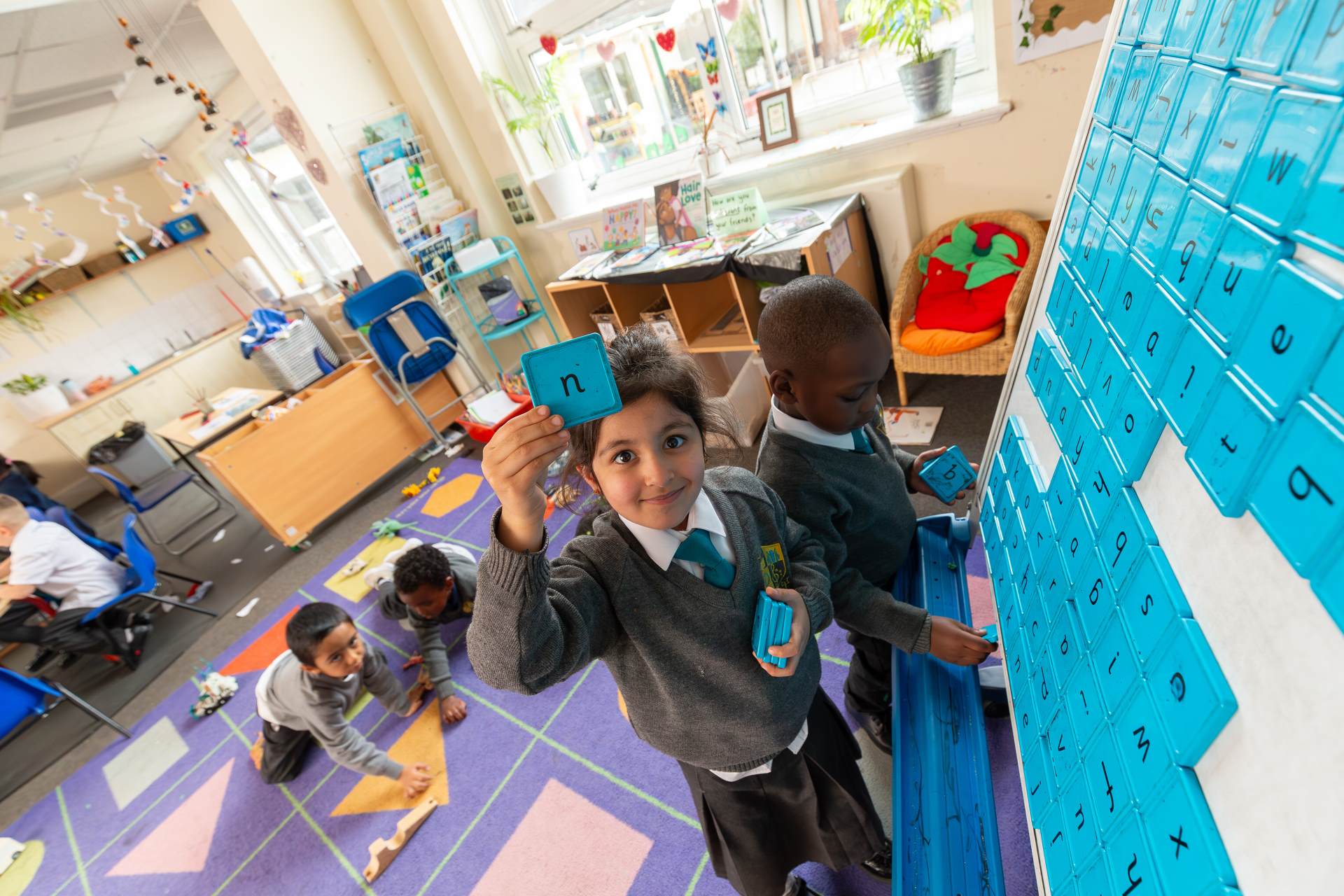Phonics
We believe that every child can become a confident and fluent reader.
Learning to read and write opens the door to imagination, knowledge and opportunity — and we are passionate about giving every child the strongest possible start.
We use the Sounds-Write programme, a highly structured, evidence-based phonics approach, to teach children how the sounds of spoken English are represented by letters and spelling patterns.
Through daily, focused phonics sessions, children develop the knowledge and skills they need to read, spell and write with confidence.
Our intent is for all children to:
- Develop secure phonic knowledge and a deep understanding of how the English writing system works.
- Build strong blending and segmenting skills to read and spell words confidently.
- Understand how to manipulate sounds — adding, removing, or changing phonemes within words.
- Gain the fluency and accuracy needed to read for pleasure and for purpose.
- Develop a lifelong love of language, stories and books.
- Be supported and challenged so that every child makes excellent progress, including those who find reading more difficult.

Key Stage 1: Early years until end of Year 2
By the end of Key Stage 1, all common spellings for the 44 sounds of English are taught, developing fluency and deepening understanding by the end of Year 2.
Reading Practice
To strengthen reading at home and at school, each child takes home two types of books:
- A decodable reader, matched to their current phonics stage (two units behind the code they are learning). This allows them to practise, apply and embed their phonics knowledge, building fluency and confidence.
- A sharing book, a storybook chosen from our school library to enjoy with an adult. These books expose children to rich vocabulary, diverse stories and wider language experiences.
This approach reflects Scarborough’s Reading Rope, which shows that reading comprehension develops through the combination of word recognition and language comprehension.
Key Stage 2: Year 3 to Year 6
In Key Stage 2, children who need additional support continue to receive phonics-based teaching through differentiated tasks in whole-class reading lessons and through weekly small-group keep-up sessions. These sessions ensure that every pupil continues to develop the vital skills needed for fluent reading and confident writing.
'Sounds Write' Presentation for Parents'Sounds Write' guide for Reception parentsCommon spellings of the consonants and vowelsGlossary of phonics terms for parentsInitial Code timelineExtended Code timeline








